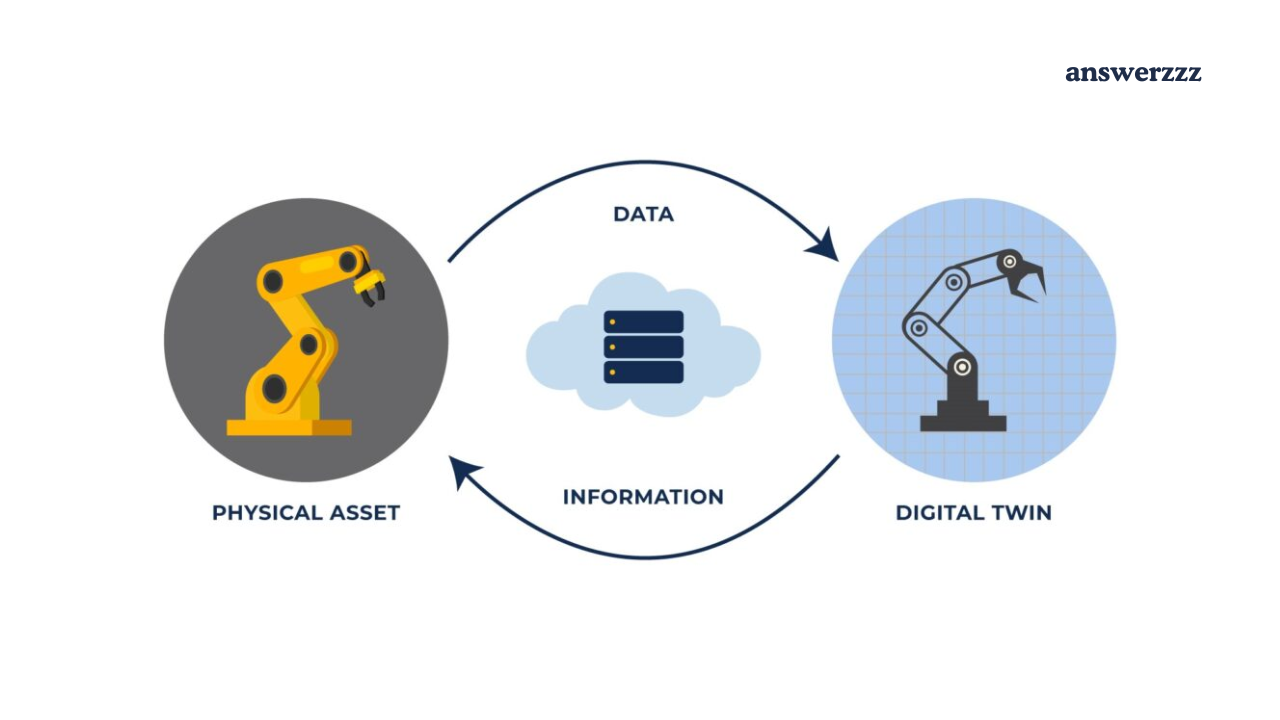Blockchain technology, created to underpin cryptocurrencies like Bitcoin, has evolved far beyond its financial roots. While cryptocurrencies have dominated the conversation surrounding blockchain in the past decade, the potential uses of this transformative technology are vast and varied. By 2026, blockchain is poised to revolutionize numerous industries, from supply chain management to healthcare, identity verification, and beyond. In this article, we will explore the most exciting blockchain innovations beyond cryptocurrencies that are expected to take centre stage in the coming years.
1. Blockchain in Supply Chain Management
Supply chain management has long been plagued by inefficiencies, lack of transparency, and issues related to trust between parties. Blockchain offers a robust solution to many of these challenges, providing a decentralized and transparent ledger that tracks goods and materials at each stage of the supply chain.
Innovation to Watch: Smart Contracts for Automated Supply Chains
One of the key innovations in blockchain supply chain management is the use of smart contracts. These are self-executing contracts where the terms of the agreement are directly written into code. By using smart contracts, businesses can automate processes such as inventory tracking, order fulfilment, and payments, which not only reduces the need for intermediaries but also minimizes human error and fraud.
For example, in industries like food production, blockchain can track the journey of a product from farm to table, ensuring that consumers have full transparency regarding the origins and handling of the products they purchase. By 2026, expect to see an even broader adoption of blockchain-powered supply chain systems across industries like pharmaceuticals, fashion, and automotive, further enhancing efficiency and accountability.
2. Blockchain in Healthcare
The healthcare industry faces numerous challenges, including the secure sharing of patient data, fragmented medical records, and the need for greater transparency in clinical trials and pharmaceuticals. Blockchain technology is poised to address many of these challenges by providing a secure, immutable, and decentralized platform for managing sensitive health information.
Exploring the Future of 6G Networks: How It Will Change Connectivity
Innovation to Watch: Blockchain for Secure Health Data Sharing
One of the most promising blockchain applications in healthcare is the secure sharing of electronic health records (EHR). Currently, health data is often siloed across different providers and systems, which can lead to errors and inefficiencies. Blockchain could enable patients to control their health data, giving them the power to share it securely with doctors, specialists, or hospitals on a need-to-know basis.
By using blockchain for health data management, healthcare providers can ensure that patient records are immutable and tamper-proof, reducing the risk of fraud or data breaches. Additionally, patients could give consent for data use, such as sharing their medical history with researchers or participating in clinical trials, creating a more personalized and efficient healthcare system. By 2026, blockchain could become an integral part of healthcare infrastructures, promoting privacy, security, and patient empowerment.
3. Blockchain for Digital Identity Verification
Identity theft and fraud are growing concerns in an increasingly digital world. Traditional identity verification methods, such as passwords or centralized databases, are vulnerable to hacking, and individuals have limited control over their data. Blockchain offers a promising solution by enabling decentralized digital identities that are secure, verifiable, and owned by the individual.
Innovation to Watch: Self-Sovereign Identity (SSI) Solutions
One of the most exciting innovations in digital identity is the development of self-sovereign identity (SSI) systems. With SSI, individuals can create, manage, and share their digital identities without relying on third-party authorities such as governments or corporations. Blockchain enables users to control their identity data, which is stored securely in a decentralized ledger, and grants access to specific parties when needed.
In 2026, SSI could become a mainstream solution for various applications, from online banking and e-commerce to accessing government services and voting systems. By using blockchain for digital identity verification, individuals can protect their data, while institutions can reduce the risk of fraud and streamline authentication processes.
4. Blockchain in Voting Systems
Election security has been a topic of significant concern, particularly with the rise of cyber-attacks, hacking, and the manipulation of electoral systems. Traditional voting systems often rely on centralized databases and paper ballots, both of which can be vulnerable to tampering. Blockchain offers a decentralized and immutable solution that could transform the way elections are conducted.

Innovation to Watch: Blockchain-Based Voting Platforms
Blockchain’s transparency and immutability make it an ideal candidate for secure voting systems. With blockchain-based voting, each vote would be recorded as a unique and verifiable transaction, ensuring that it cannot be altered or deleted. Additionally, blockchain could help to improve voter turnout by allowing secure remote voting, eliminating the need for physical polling stations and reducing barriers to participation.
By 2026, blockchain could play a pivotal role in transforming electoral processes, offering a secure, transparent, and auditable system for elections. Governments and organizations around the world may begin to experiment with blockchain-based voting in smaller-scale elections or pilot programs, ultimately paving the way for widespread adoption in national elections.
5. Blockchain in Intellectual Property and Copyright Protection
The protection of intellectual property (IP) is increasingly complicated in the digital age, where copying and distributing digital assets like music, software, and artwork is easier than ever. Blockchain has the potential to disrupt the IP landscape by providing a decentralized, immutable record of ownership and provenance.
Innovation to Watch: Blockchain for Digital Rights Management
Blockchain-based digital rights management (DRM) systems can ensure that creators receive fair compensation for the use of their work. With blockchain, every time a piece of content is accessed or sold, the transaction can be recorded on the blockchain, allowing creators to automatically receive royalties or payments. This could be particularly revolutionary in industries like music, film, and publishing, where creators often struggle to control how their works are used and monetized.
By 2026, blockchain-based DRM systems could become standard practice for digital content creators, giving them more control over their intellectual property and ensuring fair compensation for their work.
6. Blockchain in Real Estate
The real estate industry has long been bogged down by paper-based transactions, slow processing times, and high transaction costs. Blockchain could streamline the real estate market by digitizing property ownership and automating processes such as title transfers, payments, and escrow management.
Innovation to Watch: Tokenization of Real Estate Assets
Real estate tokenization is an emerging trend that could significantly reduce the barriers to entry for investors. By tokenizing real estate properties on the blockchain, fractional ownership can be offered, allowing individuals to invest in properties without the need for large capital investments. This could democratize access to real estate investment, opening up new opportunities for small investors while increasing liquidity in the real estate market.
By 2026, tokenized real estate assets could become a common investment vehicle, and blockchain could fundamentally change the way properties are bought, sold, and owned.
7. Blockchain for Renewable Energy and Sustainability
As the world moves towards renewable energy and more sustainable practices, blockchain can play a crucial role in promoting transparency and efficiency within energy markets. Blockchain technology can provide a decentralized platform for trading renewable energy credits, certifying green energy production, and optimizing energy distribution.
Innovation to Watch: Blockchain for Decentralized Energy Grids
One of the most exciting innovations in blockchain for sustainability is the concept of decentralized energy grids. By using blockchain, energy producers (e.g., solar panel owners or wind farms) can sell excess energy directly to consumers without the need for intermediaries. This peer-to-peer energy trading system could lead to more efficient energy distribution, reduce costs, and encourage the adoption of renewable energy sources.
By 2026, blockchain could be instrumental in creating smart, decentralized energy markets that empower individuals and communities to become active participants in the renewable energy transition.

The Future of Blockchain Beyond Cryptocurrencies
Blockchain technology is poised to become one of the most transformative forces of the next decade, with far-reaching implications beyond its use in cryptocurrencies. From revolutionizing supply chains and healthcare to creating decentralized voting systems and securing digital identities, the potential applications of blockchain are vast and varied.
As we look toward 2026, blockchain’s role in industries like energy, intellectual property, and real estate will continue to evolve, with innovations emerging to address some of the world’s most pressing challenges. While blockchain’s integration into these industries will require time, collaboration, and regulation, its promise of transparency, security, and decentralization makes it a technology to watch in the years to come.
By embracing these innovations, industries can not only increase efficiency and security but also lay the foundation for a more equitable and sustainable future. Blockchain is no longer just a buzzword or a tool for digital currencies – it’s a transformative technology that is reshaping the way we do business, interact with one another, and even govern ourselves. The possibilities are endless, and we are just beginning to scratch the surface of what blockchain can achieve.




